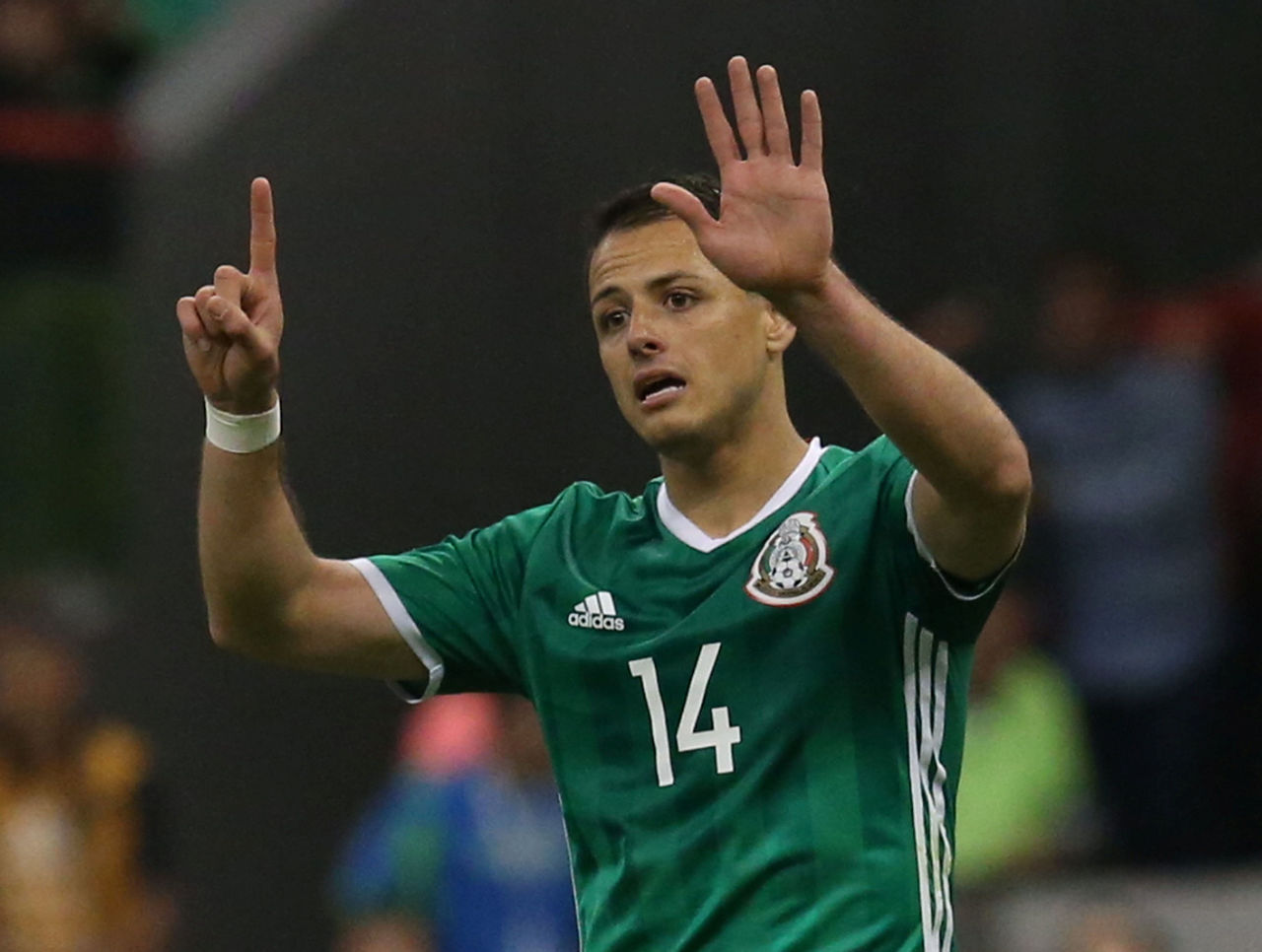Confederations Cup: 5 storylines to follow in Russia
Treated as a dress rehearsal for the quadrennial World Cup, the Confederations Cup brings together the best national teams from each region in world football. It is not the most prestigious tournament, but it offers a chance to make an impact on an international level and prepare for the main event the following year.
There is still plenty to watch over the next few weeks as some of the biggest countries figure out their strengths and weaknesses.
Related - Confederations Cup: Squad lists for every team
Here are five storylines to watch in Russia:
Will Germany's inexperience make a difference?

Germany manager Joachim Low opted to assemble a younger, less experienced squad for the Confederations Cup, bringing just three World Cup winners to Russia.
Julian Draxler, the veteran of the group, is only 23 years old. Twelve players in the squad have amassed six caps or fewer with Die Mannschaft - a list including recent debutants Amin Younes, Lars Stindl, Sandro Wagner, and Timo Werner.
Winning the tournament is not exactly the goal here. Low said he has long viewed it as an opportunity to showcase Germany's next generation.
The Ajax winger Younes enjoyed a strong season in the Eredivisie, Stindl produced a fantastic second half of the 2016-17 campaign - in which he scored a tie-changing hat-trick against Fiorentina in Europa League action - and Wagner, one of the late bloomers at 29, scored the goals to help Hoffenheim reach the Champions League.
There is also Werner, the RB Leipzig standout who first represented his country as recently as March. He can lead Low's frontline.
Group B fixtures against Cameroon, Chile, and Australia should allow these newcomers to test themselves and show Low whether they have enough skill to make the cut for the 2018 World Cup.
Can Portugal prove itself on global stage?

Keeping three clean sheets in four knockout matches, Portugal won Euro 2016, the country's first major international title, with a combination of resolute defending and timely scoring.
Critics railed against the Portuguese for their conservative style of play, suggesting that they were less deserving of the honour of defeating France in extra time.
Though there should not be any doubts, Portugal can prove at the Confederations Cup that what happened last summer was no fluke.
Manager Fernando Santos recalled the majority of his Euro protagonists, headlined by Cristiano Ronaldo. The scorer of the tournament-clincher, Eder, was left at home. Andre Silva, whom AC Milan signed for €38 million this week, has instead asserted himself as Portugal's future No. 9, scoring seven goals in his first eight senior international appearances.
Will Santos insist on the same counter-attacking football that brought Portugal success in France last year? Does he even have to?
Does Chile's aging squad have something left?

With an average age over 27 years old, Chile is one of the most tenured squads to travel to Russia, but the overwhelming concern is that La Roja has peaked.
Still boasting the likes of power forward Alexis Sanchez, midfield dynamo Arturo Vidal, and defensive pit bull Gary Medel, Chile has a durable spine. Whether the rest of the national team can hold up is subject to debate.
Juan Manuel Pizzi kept Chile's machine roaring in the Copa America Centenario, where it dispatched Mexico 7-0 in an elimination game. Pizzi's side also managed to once again frustrate Lionel Messi, who decided to take a brief sabbatical from international football shortly thereafter.
But a helter-skelter 2018 World Cup qualifying campaign has left many wondering if Pizzi can get the best out of this aging team. Losses to Uruguay, Argentina, Paraguay, and Ecuador have put Chile at risk of missing next year's main event.
Can Mexico compete with world's best?

In the familiar confines of CONCACAF, Mexico has little issues. It is when El Tri ventures outside the region that it encounters the most difficulty.
The 7-0 reverse to Chile remains the biggest blotch on Juan Carlos Osorio's two-year spell as Mexico's manager - even if he boasts a wildly successful 75 percent winning rate through 24 matches. Good results in 2018 World Cup qualifying have sent Mexico on its way to a seventh straight appearance in the competition.
Mexico has also enjoyed nice runs at the Confederations Cup, which it won in 1999. But that is the extent of its global success. It has tripped up at the Round of 16 stage at each of the past six World Cups, and only reached the quarter-finals once before.
With Javier "Chicharito" Hernandez, the country's all-time leading scorer with 47 international goals, Osorio's side has an opportunity to boost the country's football credentials in Russia.
Has Cameroon finally found its groove?

Thanks to Hugo Broos, the well-travelled football man who took over Cameroon in 2016, the Indomitable Lions won a first Africa Cup of Nations in 15 years last January, ending an embarrassing decade-and-a-half of disorganisation.
As recently as 2013, Cameroon was banned by FIFA as a result of governmental interference with the country's football federation. It marked a low point for a nation which had lost its way in the international game, as Cameroon failed to qualify for the 2012 and 2013 editions of AFCON.
Better times are ahead. Broos has selected a young team for the Confederations Cup, with Vincent Aboubakar and Christian Bassogog exciting the masses. The loss of Ambroise Oyongo to injury could have a damaging effect on Cameroon's backline, and a 4-0 loss to Colombia on Tuesday failed to inspire confidence.
Just reaching the point of relevance, however, is progress in itself after years of disappointment.